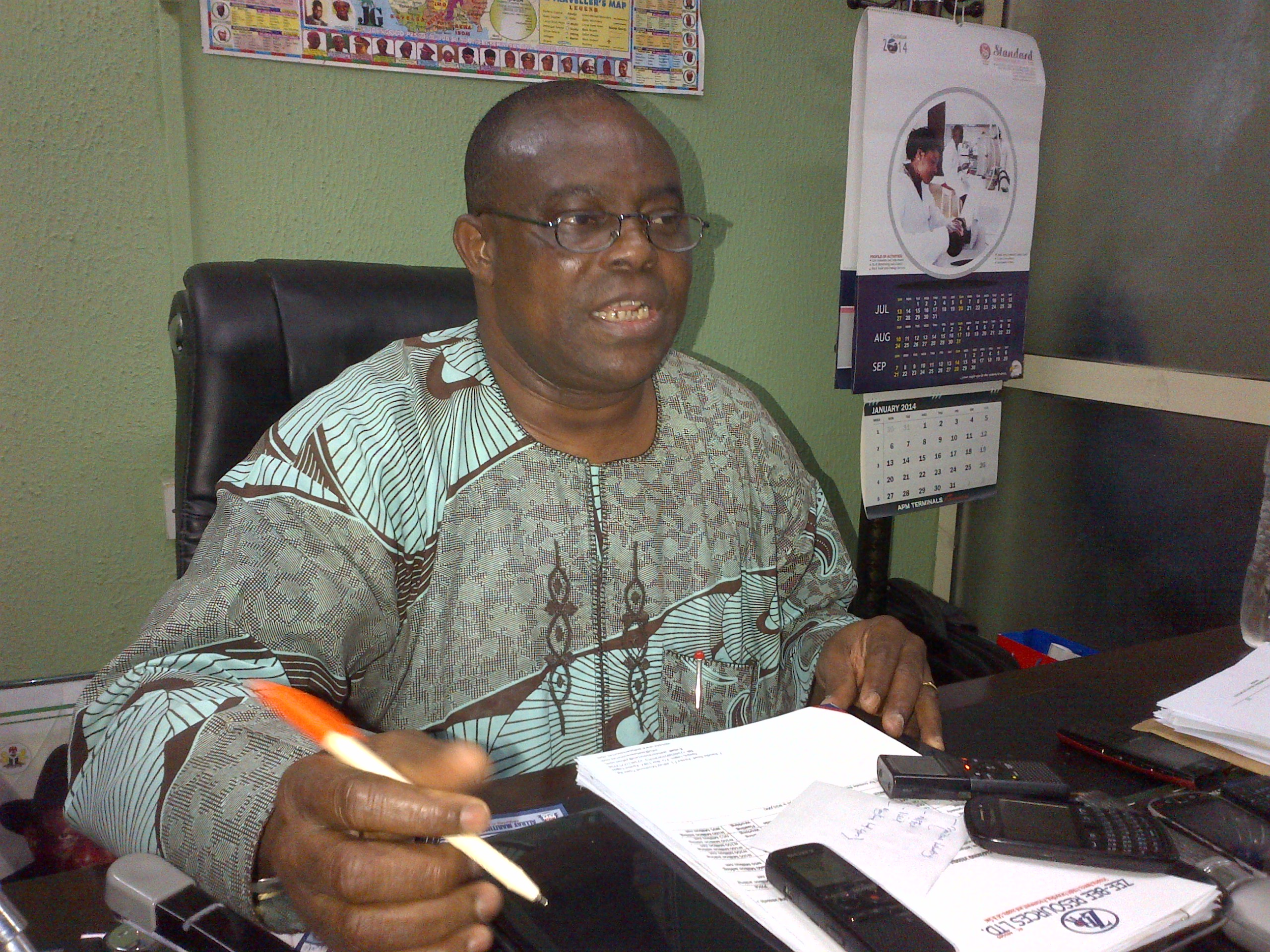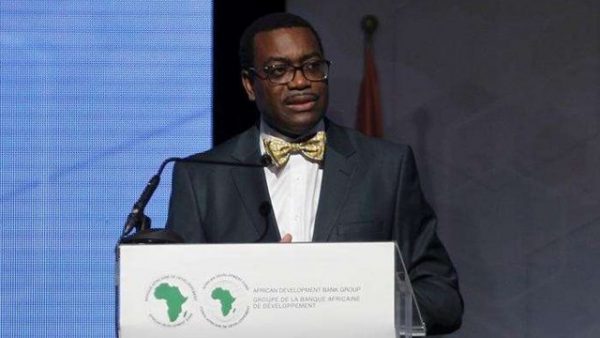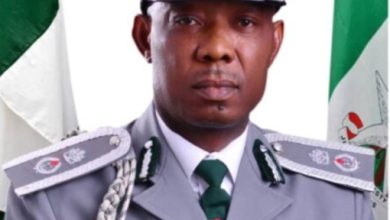Freight Forwarder’s Enlightenment Guarantees Economic Growth And National Security – Princess Chi

By Kenneth Jukpor
Mrs. Princess Chi Ezeh is the Managing Director, Muna-Sylver Nig. Limited. Having spent decades in Nigeria’s oil and gas industry, Princess recently dovetailed into the nation’s maritime sector with special interest in freight forwarding. In this interview she highlights the similar characteristics and umbilical cord between both sectors. Princess also reveals her plans to ensure freight forwarders and Nigeria Customs Service (NCS) officers work together to ensure seamless transactions at the ports while protecting the nation’s interest. Excerpts:
Let’s meet you ma?
I’m Princess Chi Ezeh, the Chief Executive Officer (CEO) Muna-Sylver Nigeria Limited. My company is a Customs Licensed Agency specialized in freight forwarding business although I have been active in the oil and gas industry for over a decade before I decided to venture into maritime. I can say I have conquered the oil and gas sector which is a very complex one in Nigeria.
However, most of the challenges in the oil sector aren’t unconnected to the maritime sector especially the area of freight (oil) carriage. So, my decision to delve into freight forwarding was as a result of the myriad of challenges I have observed in business when I focused only in the oil and gas sector. I haven’t abandoned the oil and gas aspect of my company; we only expanded to accommodate other things like freight forwarding. I have swiftly registered with the Council for the Regulation of Freight Forwarding in Nigeria (CRFFN) which means I’m a registered freight forwarder and I have also obtained a Customs license for my company. Similarly, I joined one of the professional bodies in the sector, which is the National Association of Government Approved Freight Forwarders (NAGAFF).
We are in the second quarter of 2018, as an oil and gas veteran who has ventured into maritime, what are your predictions or postulations for Nigeria’s economy looking at the impact of both sectors?
Nigeria’s oil sector is very crucial to the nation’s economy as it is responsible for a significant portion of government’s revenue regeneration. Recall that the economy went into recession early last year, as a result of the slump in global crude oil prices and there was also a boost in the economy after global crude oil prices increased. However, the carriage of oil either via import or export is done via shipping which is maritime. The state of the nation’s ports and its challenges affects crude affreightment. It elongates vessel turnaround time; while corruption is also a recurring problem in both sectors of the economy.
However, there is a bit of stability in the prices of crude oil globally and Nigeria should maximize these benefits especially as there would be more challenges facing crude oil with the development of shale oil in United States of America (USA) and in Europe, there is emergence of cars which would rely on other sources of power rather than crude.
The maritime sector has observed some form of development since the Vice President, Prof. Yemi Osinbajo came up with the Executive Directive to ease the operations at the ports. I think the economy would observe steady growth as a result of the stability in the oil sector and the maritime sector. I’m aware that some analysts are saying that the 2019 general elections may cause some changes or some form of unpredictability in the nation’s economy but I’m sticking to the economic indices only.
Looking at the Nigerian maritime sector, especially at the ports, what are the major challenges you have observed and how can we make the ports better for a business person like you?
There several challenges in Nigeria’s port system such as the bad port access roads, unfavourable policies and corruption by some operators along the supply chain. These are big issues that define the competitiveness of any port. Therefore, the Federal Government should endeavour to address them.
On the issue of bad roads, there are ongoing reconstruction at Apapa while palliatives are been put in place along the Coconut axis leading to Tin Can Island port from Mile2. While the government can be commended, the fact is that they shouldn’t have allowed port infrastructure deteriorate to such pitiable state and the pace of the repairs is too slow.
The government should also carryout proper research and consult with stakeholders before instituting policies so that we don’t have a scenario where we have policies that are too hard for people to comply. When you have policies that people refuse to comply, the government has to check it because it’s probably too hard on the people. Such tough policies have to be rejigged to make it acceptable by the people in order to encourage voluntary compliance. It doesn’t mean the policy must be too loose, but it has to be something that is adaptable.
I’m aware you are contesting for one of the positions in the upcoming NAGAFF elections; tell us about the position and what you intend to do with the office?
I’m coming out for the position of Customs Freight Forwarders Relations Officer (CFFRO) at the Apapa Chapter of NAGAFF. My aspiration for this position is because I have observed that most of the problems freight forwarders are facing in the sector have to do with the relationship or lack of synergy with the Customs. I think I am in position to assist in fixing this problem because it affects the nation grossly. This disconnect between the Customs and freight forwarders is responsible for the delays in clearing goods at the ports leading to exorbitant fees as demurrage. Lack of synergy in the supply chain also leads to importation of dangerous and harmful goods. It also leads to smuggling and heightens the corruption at the ports. It robs the nation of the accurate revenue that should go to the government.
There is a dire need for the Customs and freight forwarders to harmonize. They need to be on the same page on what constitutes the due process in the import or export of certain goods. Freight forwarders should be aware of Customs procedures but most of them aren’t aware of these processes, hence, there are mistakes which lead to bottlenecks, delays, and seizures. This creates problems for the freight forwarder, the Customs Service, the importer, government’s revenue and the nation at large. Remember that the cost of import would increase as a result of demurrage and the importer has to transfer the cost burden to the final consumer of the product or service.
What solutions would you proffer if elected as the CFFRO at Apapa?
I would make sure there are frequent training programmes organized by the association as well as the Customs. These trainings would better equip freight forwarders to know the right step to take at any point in time. This would dissipate the challenges of freight forwarders in the country. I would also fight against unlawful arrest and detention of our members. I would make sure that when certain incidents occur, the opinions of both sides are heard for equity. I hope to ensure that freight forwarders are of much relevance in the maritime sector and the nation at large.
How long have you been a member of NAGAFF and why did you choose the association out of the multiplicity of freight forwarding associations in the country?
I have been a member of NAGAFF for five years. I chose to join NAGAFF because of the unique way they go about things. I see it as an association where the members display high level of professionalism and knowledge about the business and the industry. I like the way they engage with other port stakeholders such as the National Agency for Food, Drugs Administration and Control (NAFDAC), Standard Organization of Nigeria (SON), Customs, Nigeria Police, among others.
I also want to use this opportunity to commend the Founder, Dr. Boniface Aniebonam for the wonderful work he has done to enable the association attain such an amiable status of relevance in the maritime sector and the nation at large.








